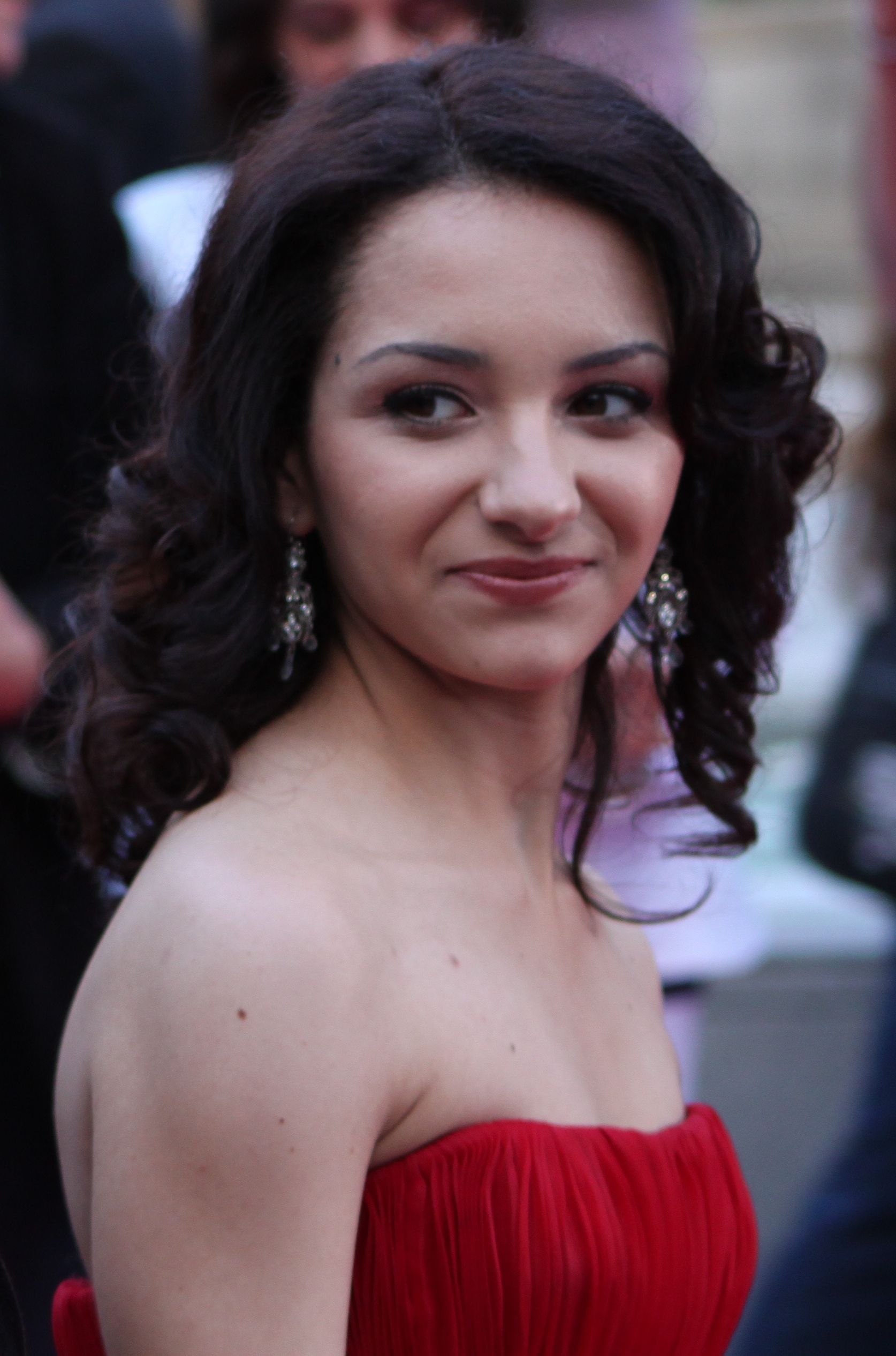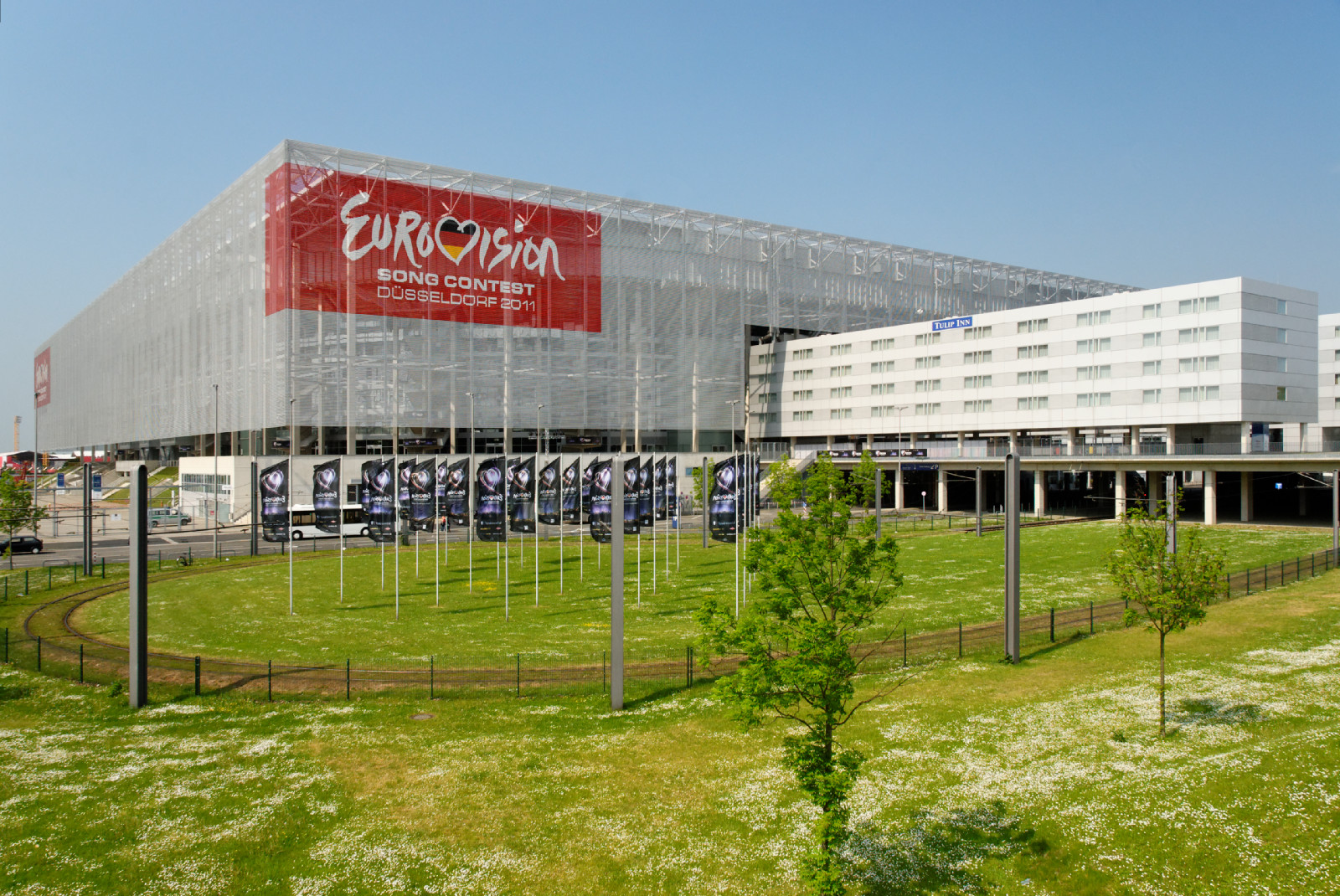|
Homens Da Luta
Homens da Luta (Men of the Struggle) is a Portuguese improvisational comedy and musical street performance group consisting of brothers Vasco Duarte (Falâncio) and Nuno Duarte "Jel" (Neto). Their songs are a parody of songs sung during the period after the 1974 Carnation Revolution, and the characters played are caricatures of the revolutionary singers of the time, such as Zeca Afonso and José Mário Branco. Homens da Luta often use the term "struggle" to invoke slogans that became famous during the revolutionary era, such as "A Luta Continua" (The Struggle Goes On). In 2010 Homens da Luta released an mp3 album called "A Canção é uma arma" (The song is a weapon) consisting of 14 songs. One of their most popular songs is "E o povo, pá?" (What about the people, man?). Eurovision Song Contest In 2010, Homens da Luta took part in the '' RTP Song Festival 2010'', with the song "Luta assim não dá" (The struggle can't go on like this). The song was disqualified as it had been ... [...More Info...] [...Related Items...] OR: [Wikipedia] [Google] [Baidu] |
Rossio DSC 0816 DBD (12310436345)
The Rossio is the popular name of the King Pedro IV Square ( pt, Praça de D. Pedro IV) in the city of Lisbon, in Portugal. It is located in the Pombaline Downtown of Lisbon and has been one of its main squares since the Middle Ages. It has been the setting of popular revolts and celebrations, bullfights and executions, and is now a preferred meeting place of Lisbon natives and tourists alike. The current name of the Rossio pays Homage (arts), homage to Pedro IV of Portugal, Pedro IV, King of Portugal. The Column of Pedro IV is in the middle of the square. History and highlights Origins The Rossio became an important place in the city during the 13th and 14th centuries, when the population of the city expanded to the lower area surrounding the Lisbon Castle hill. The name "rossio" is roughly equivalent to the word "commons" in English, and refers to a commonly owned terrain. Around 1450, the Estaús Palace, Palace of Estaus, destined to house foreign dignitaries and noblemen ... [...More Info...] [...Related Items...] OR: [Wikipedia] [Google] [Baidu] |
Düsseldorf
Düsseldorf ( , , ; often in English sources; Low Franconian and Ripuarian: ''Düsseldörp'' ; archaic nl, Dusseldorp ) is the capital city of North Rhine-Westphalia, the most populous state of Germany. It is the second-largest city in the state and the seventh-largest city in Germany, with a population of 617,280. Düsseldorf is located at the confluence of two rivers: the Rhine and the Düssel, a small tributary. The ''-dorf'' suffix means "village" in German (English cognate: ''thorp''); its use is unusual for a settlement as large as Düsseldorf. Most of the city lies on the right bank of the Rhine. Düsseldorf lies in the centre of both the Rhine-Ruhr and the Rhineland Metropolitan Region. It neighbours the Cologne Bonn Region to the south and the Ruhr to the north. It is the largest city in the German Low Franconian dialect area (closely related to Dutch). Mercer's 2012 Quality of Living survey ranked Düsseldorf the sixth most livable city in the world. Düsse ... [...More Info...] [...Related Items...] OR: [Wikipedia] [Google] [Baidu] |
Portuguese Musical Groups
Portuguese may refer to: * anything of, from, or related to the country and nation of Portugal ** Portuguese cuisine, traditional foods ** Portuguese language, a Romance language *** Portuguese dialects, variants of the Portuguese language ** Portuguese man o' war, a dangerous marine cnidarian that resembles an 18th-century armed sailing ship ** Portuguese people, an ethnic group See also * * ''Sonnets from the Portuguese'' * "A Portuguesa", the national anthem of Portugal * Lusofonia * Lusitania Lusitania (; ) was an ancient Iberian Roman province located where modern Portugal (south of the Douro river) and a portion of western Spain (the present Extremadura and the province of Salamanca) lie. It was named after the Lusitani or Lusita ... * {{disambiguation Language and nationality disambiguation pages ... [...More Info...] [...Related Items...] OR: [Wikipedia] [Google] [Baidu] |
Vida Minha
Portugal participated in the Eurovision Song Contest 2012 with the song "Vida minha" written by Andrej Babić and Carlos Coelho. The song was performed by Filipa Sousa. The Portuguese broadcaster Rádio e Televisão de Portugal (RTP) organised the national final '' Festival da Canção 2012'' in order to select the Portuguese entry for the 2012 contest in Baku, Azerbaijan. The competition took place on 10 March 2012 where "Vida minha" performed by Filipa Sousa emerged as the winner after achieving the highest score following the combination of votes from twenty regional juries and a public televote. Portugal was drawn to compete in the second semi-final of the Eurovision Song Contest which took place on 24 May 2012. Performing during the show in position 6, "Vida minha" was not announced among the top 10 entries of the second semi-final and therefore did not qualify to compete in the final. It was later revealed that Portugal placed thirteenth out of the 18 participating count ... [...More Info...] [...Related Items...] OR: [Wikipedia] [Google] [Baidu] |
Filipa Sousa
Filipa Sousa (born 2 March 1985) is a Portuguese singer. She represented Portugal at the Eurovision Song Contest 2012 in Baku, Azerbaijan with the song "Vida minha". Sousa debuted in 2003, as a member of the Portuguese group, Al-Mouraria. In the same year, she auditioned for the second edition of Operação Triunfo, reaching the 30 finalist but not qualifying for the last 15. It was in 2007, that she once again auditioned for Operação Triunfo reaching the final 15, and received recognition for the public. In 2008 she won the ‘Grande Noite de Fado’ held in Algarve The Algarve (, , ; from ) is the southernmost NUTS II region of continental Portugal. It has an area of with 467,495 permanent inhabitants and incorporates 16 municipalities ( ''concelhos'' or ''municípios'' in Portuguese). The region has it .... References 1985 births Living people 21st-century Portuguese women singers People from Albufeira Eurovision Song Contest entrants for Portugal Eurov ... [...More Info...] [...Related Items...] OR: [Wikipedia] [Google] [Baidu] |
Portugal In The Eurovision Song Contest
Portugal has participated in the Eurovision Song Contest 53 times since its debut at the 1964 contest. Since then it has missed five contests (, , , and ). The contest is broadcast in Portugal by Rádio e Televisão de Portugal (RTP). Portugal won the contest for the first time in and hosted the contest in Lisbon. Portugal finished last on its debut in 1964 and again in , before achieving its best result of the 20th century in , with Lúcia Moniz finishing sixth. The country then finished last for the third time in . Having not appeared in the final since and as holders of the record for most appearances in the contest without a win, Portugal won at the 49th attempt, when Salvador Sobral won the 2017 contest with the song "", Portugal's first top-five result in the contest. As hosts in 2018, the country finished last in the contest for a fourth time. History Portugal's debut entry was António Calvário with "". It was not a successful debut for the country, with Calvário ... [...More Info...] [...Related Items...] OR: [Wikipedia] [Google] [Baidu] |
Há Dias Assim
Portugal participated in the Eurovision Song Contest 2010 with the song "Há dias assim" written by Augusto Madureira. The song was performed by Filipa Azevedo. The Portuguese broadcaster Rádio e Televisão de Portugal (RTP) organised the national final ''Festival da Canção 2010'' in order to select the Portuguese entry for the 2010 contest in Oslo, Norway. After two semi-finals and a final which took place in March 2010, "Há dias assim" performed by Filipa Azevedo emerged as the winner after achieving the highest score following the combination of votes from twenty regional juries and a public televote. Portugal was drawn to compete in the first semi-final of the Eurovision Song Contest which took place on 25 May 2010. Performing during the show in position 14, "Há dias assim" was announced among the top 10 entries of the first semi-final and therefore qualified to compete in the final on 29 May. It was later revealed that Portugal placed fourth out of the 17 participating ... [...More Info...] [...Related Items...] OR: [Wikipedia] [Google] [Baidu] |
Filipa Azevedo
Filipa Daniela Azevedo de Magalhães (, born 31 July 1991), is a Portuguese singer. She is currently resident in the United Kingdom while attending music school in London. Azevedo represented Portugal in the Eurovision Song Contest 2010 with the song "Há dias assim", finishing 18th out of 25 in the final held in Oslo on 29 May 2010 in Oslo, Norway. Early life Azevedo was born in Porto and spent the first fifteen years of her life living in the village of Montezelo, close to Melres, a parish of Gondomar, in the northern Portuguese district of Porto. She enrolled at age 12 on a course in Western Concert Flute at the Porto Music Conservatory, discovering there a passion and talent for singing. She soon quit her instrument classes to pursue a musical career, signing up at age 16 for ''Família Superstar'' (the Portuguese version of '' The Superstar Family Show''). Career 2007: ''Família Superstar'' The show's judges greeted Azevedo's performance with praise: Anjos singer Sé ... [...More Info...] [...Related Items...] OR: [Wikipedia] [Google] [Baidu] |
Germany
Germany,, officially the Federal Republic of Germany, is a country in Central Europe. It is the second most populous country in Europe after Russia, and the most populous member state of the European Union. Germany is situated between the Baltic and North seas to the north, and the Alps to the south; it covers an area of , with a population of almost 84 million within its 16 constituent states. Germany borders Denmark to the north, Poland and the Czech Republic to the east, Austria and Switzerland to the south, and France, Luxembourg, Belgium, and the Netherlands to the west. The nation's capital and most populous city is Berlin and its financial centre is Frankfurt; the largest urban area is the Ruhr. Various Germanic tribes have inhabited the northern parts of modern Germany since classical antiquity. A region named Germania was documented before AD 100. In 962, the Kingdom of Germany formed the bulk of the Holy Roman Empire. During the 16th ce ... [...More Info...] [...Related Items...] OR: [Wikipedia] [Google] [Baidu] |
Eurovision Song Contest 2011
The Eurovision Song Contest 2011 was the 56th edition of the Eurovision Song Contest. It took place in Düsseldorf, Germany, following the country's victory at the with the song "Satellite" by Lena. Organised by the European Broadcasting Union (EBU) and host broadcasters Arbeitsgemeinschaft Rundfunkanstalten Deutschland (ARD) and Norddeutscher Rundfunk (NDR), the contest was held at the Düsseldorf Arena and consisted of two semi-finals on 10 and 12 May, and a final on 14 May 2011. The three live shows were presented by German comedians Anke Engelke and Stefan Raab, and television presenter Judith Rakers. Forty-three countries participated in the contest, equalling the record of the 2008 edition. Four countries returned to the contest this year; Austria returned after their last participation in , Hungary returned after their last participation in , San Marino returned after their very first participation in . Italy also returned to the contest after their last participatio ... [...More Info...] [...Related Items...] OR: [Wikipedia] [Google] [Baidu] |
Portugal
Portugal, officially the Portuguese Republic ( pt, República Portuguesa, links=yes ), is a country whose mainland is located on the Iberian Peninsula of Southwestern Europe, and whose territory also includes the Atlantic archipelagos of the Azores and Madeira. It features the westernmost point in continental Europe, and its Iberian portion is bordered to the west and south by the Atlantic Ocean and to the north and east by Spain, the sole country to have a land border with Portugal. Its two archipelagos form two autonomous regions with their own regional governments. Lisbon is the capital and largest city by population. Portugal is the oldest continuously existing nation state on the Iberian Peninsula and one of the oldest in Europe, its territory having been continuously settled, invaded and fought over since prehistoric times. It was inhabited by pre-Celtic and Celtic peoples who had contact with Phoenicians and Ancient Greek traders, it was ruled by the Ro ... [...More Info...] [...Related Items...] OR: [Wikipedia] [Google] [Baidu] |
A Luta é Alegria
"A luta é alegria" (; English: The struggle is joy) was a 2011 protest song released by Homens da Luta, a Portuguese comedy musical street performance group. The song represented Portugal in the Eurovision Song Contest 2011 after winning ''Festival da Canção 2011'', Portugal's national final for the Eurovision Song Contest 2011. The song would fail to qualify, finishing 18th in the first semi-final with 22 points. Background According to the band, the song was inspired by the peaceful Carnation Revolution in 1974 which overthrew the authoritarian Estado Novo regime. In a press conference, the band wanted "A luta é alegria" to be like the Carnation Revolution, saying "It was a peaceful revolution. And that’s the spirit we want to bring here to the Eurovision Song Contest." The band also called for unity with music, saying "Music is the weapon of the future! We are facing many problems in Portugal at the moment. People everywhere are reading the newspapers and watching TV, ... [...More Info...] [...Related Items...] OR: [Wikipedia] [Google] [Baidu] |




